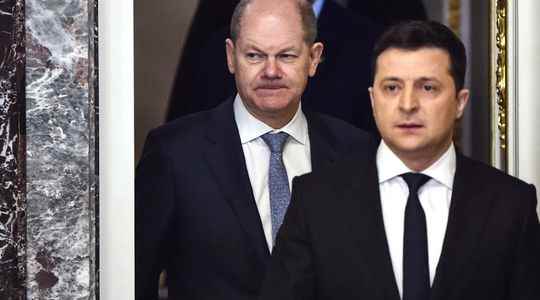A new world is emerging from the war in Ukraine and it is the involuntary work of Vladimir Putin, a president mentally deranged by twenty years of solitude and absolute power. By launching an armed offensive against a democratic country on the European continent, in violation of all the rules of international law, the Russian dictator ended up generating, through his very war, the paranoid and fantasized scenario which he had made a false motive for war.
But Ukraine’s “membership plan” for NATO never materialized. But NATO’s “threat” to Russia, non-existent and imaginary yesterday, suddenly takes shape: Putin’s invasion of Ukraine has awakened this dormant organization, in the state of near “brain death” that had denounced Emmanuel Macron. It caused the presence of some military troops at its borders in the countries of the Atlantic Alliance. The war strengthened the solidarity of a European Union that the master of the Kremlin rightly considered to be disunited, and whose member states were ready to tear themselves apart at the slightest pretext.
The European Parliament has backed Ukraine’s request to be declared a candidate to join the European Union (EU). Taboos are falling one after the other. For the first time, the EU is financing the purchase and delivery of lethal weapons to a country under attack. Sweden breaks with its tradition of neutrality and delivers arms to Ukraine. Even Switzerland is doing it in its own way by taking over “fully” EU sanctions against Russia, including against its president, and the freezing of assets. The Western alliance and the European Union in particular find themselves united as never before. In the laborious project of a European defence, bogged down for decades between lyrical inclinations and miniscule achievements, Putin has taken a giant step forward.
The German rupture, emblem of a historic turning point
But it is across the Rhine that the most spectacular revolution is taking place. Germany, completely rebuilt from the trauma of Nazism and its past hegemony, retained a fundamental mistrust of what would make it a political and military power, preferring the less ostentatious power of its industry and its status as the premier European economic power.
In the name of its own business interests, it has maintained an uncaring relationship with Putin’s Russia… Stop, warning! Before shouting haro on Germany (and on Angela Merkel) as on La Fontaine’s donkey, the favorite favorite sport of her French neighbor, let’s remember that she is not the only one in this field, and that we are not Not to be outdone: France is the second largest direct investor in Russia, and even its largest foreign employer, with more than 500 subsidiaries established in the country, including 35 CAC 40 companies, and nearly 160,000 employees.
But, by suddenly deciding to stop nuclear power after the Fukushima accident in 2011 while committing to a planned reduction in the use of coal, and while renewable energies are far from having sufficient compensation capacity , Angela Merkel has placed Germany in a situation of energy dependence vis-à-vis Russian gas, on which it depends 60%. The former Chancellor’s fervent support for the Nord Stream 2 project (a pipeline intended to double gas transport capacity from Russia to Germany, bypassing Ukraine in particular), and more generally her indulgence Putin’s screw, will remain as his historic fault.
The break made by Germany, in reaction to the war, is emblematic of a historic turning point in the European Union. The ambition displayed by Emmanuel Macron for European “strategic sovereignty” is materializing through urgency. Angela Merkel had broken a first German taboo in favor of the Covid pandemic, that of indebtedness and mutualized debt for the European recovery plan. His former coalition partner who became Chancellor, the Social Democrat Olaf Scholz, has just gone through another. From the rostrum of the Bundestag on February 27, he pledged to increase military spending (100 billion euros on the 2022 budget), to reorganize the armed forces, in fact to completely redefine foreign and defense policy, pointing out the obvious: “The world has entered a new era.”
